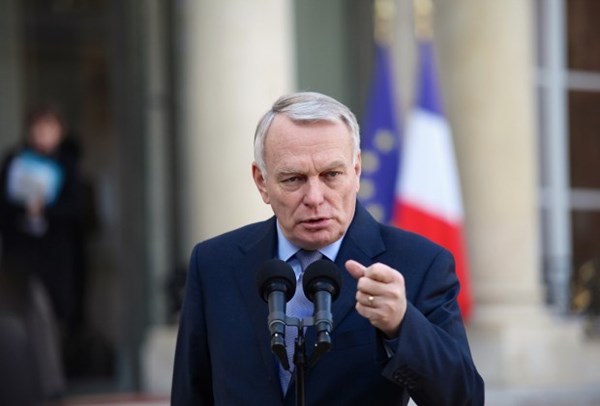French Foreign Minister acknowledges Minsk Agreements have been broken
The Minister of Foreign Affairs and International Development of France, Jean-Marc Ayrault, acknowledged that the Minsk Agreements have been broken in eastern Ukraine. He urged Moscow and Kiev to "do everything possible" to return stability to the region. He stated this after official representatives of the EU, USA, Germany, UK and Italy held informal meetings in Paris on Sunday, March 13, 2016, a UKRINFORM correspondent reports.
"We have also assessed the situation in Ukraine. Frank-Walter [Steinmeier] and I took part in the meeting of Ministers of the Normandy Format in Paris on March 3, 2016. The situation in eastern Ukraine is complicated. There is nothing to hide anymore. The firing has not stopped, the shelling continues and the agreed framework of the Minsk Agreements have not been met. The dynamics of the Minsk Agreements do not work, frankly," Ayrault said.
Taking into account the complexity of the situation, the Head of the French diplomacy, on behalf of all colleagues participating in the negotiations, urged Russia and Ukraine to do their utmost to resolve the situation. "We therefore call on the parties to make every effort to establish stability in eastern Ukraine," the French Minister said.
In particular, according to Ayrault, "Russia should put pressure on the separatists for an effective ceasefire" and "the government in Kiev should implement appropriate policies, in particular, to do everything to push through an election law, which should make the local elections in the Donbass region possible."
As UKRINFORM reported, on the 13th of March, 2016 in Paris, informal consultations were held under the chairmanship of the French Minister, Jean-Marc Ayrault. It was also attended by the Ministers, Frank-Walter Steinmeier (Germany), Paolo Gentle (Italy), Philip Hamond (UK), the U.S. Secretary of State, John Kerry, and the High Representative of the Union for Foreign Affairs and Security Policy, Federica Mogherini. The participants of the informal consultations discussed the situation in Ukraine, Syria, Libya and Yemen, as well as solutions to the Palestinian-Israeli conflict.
